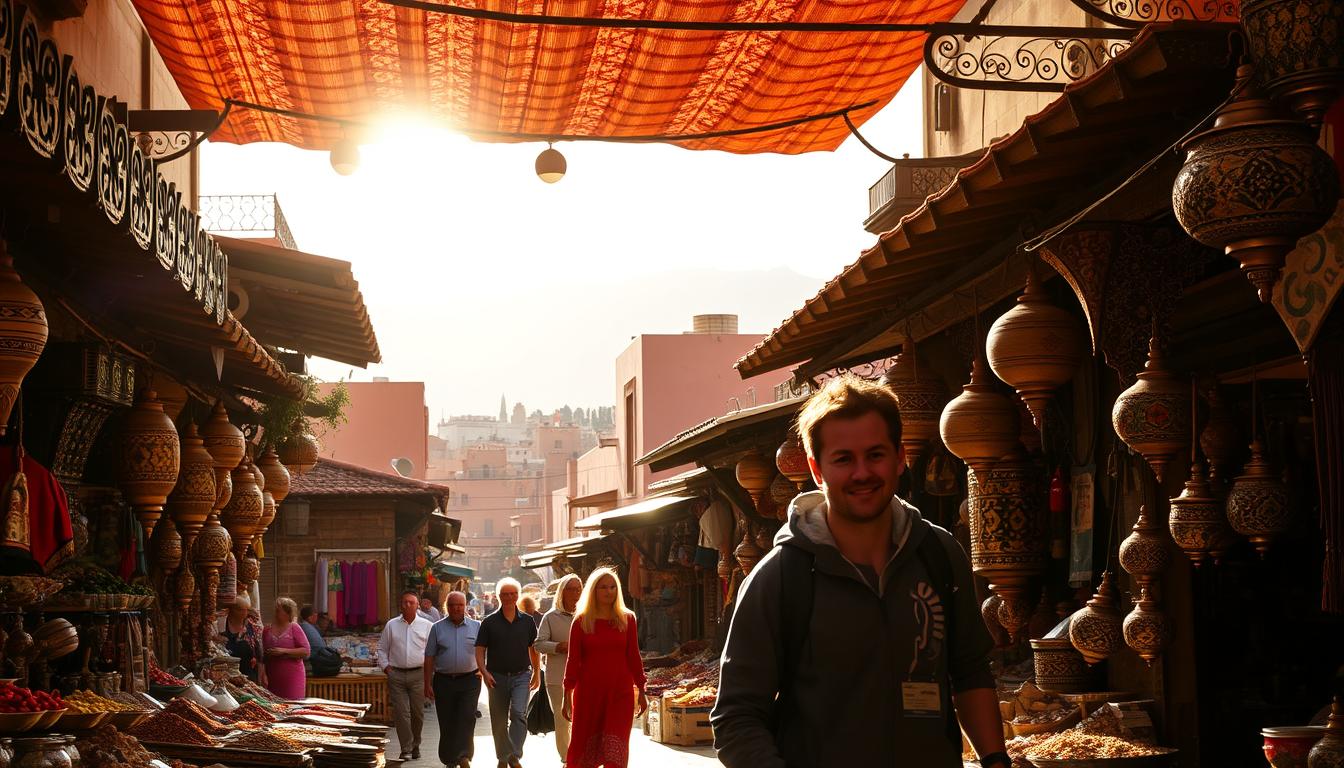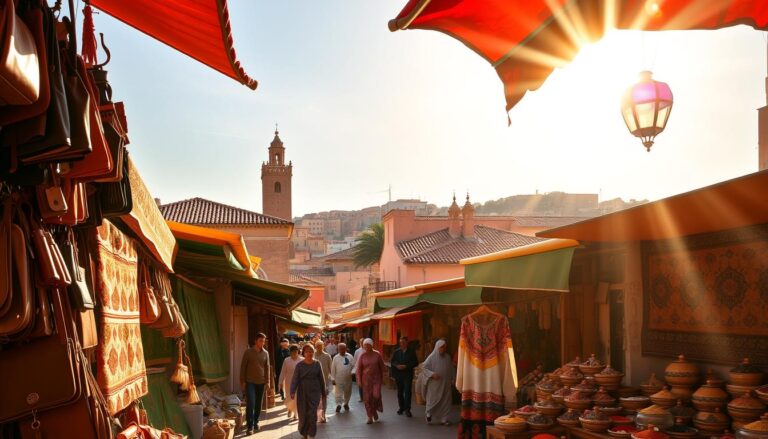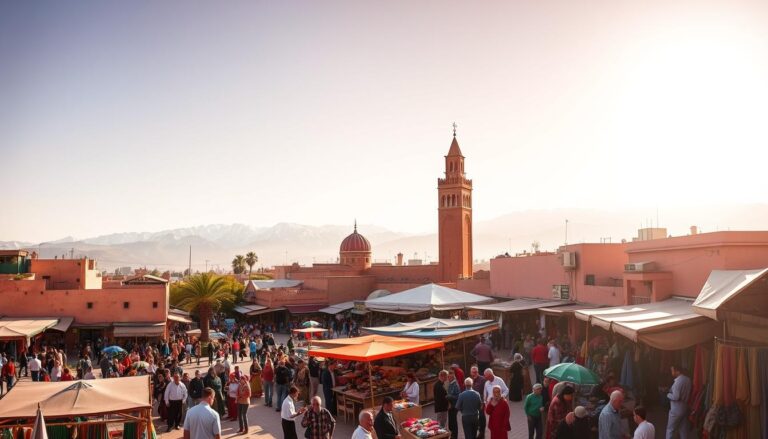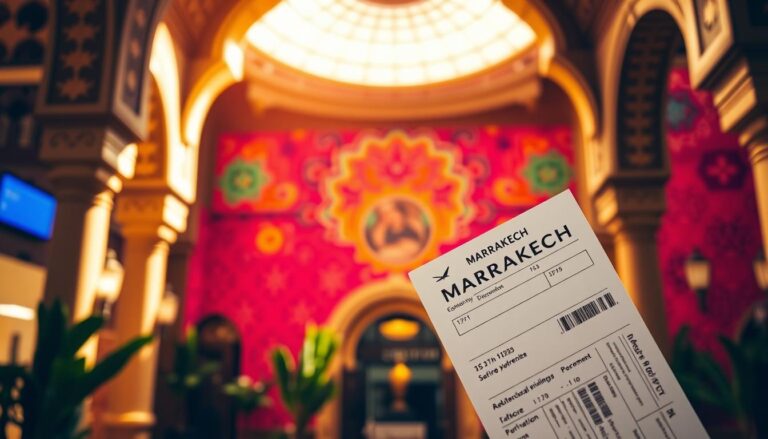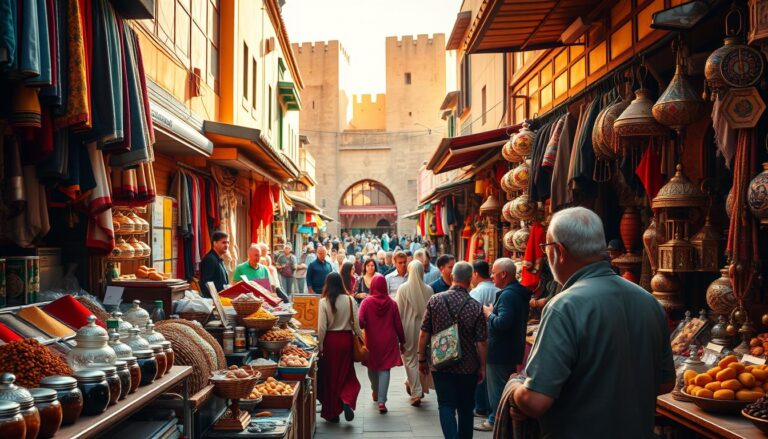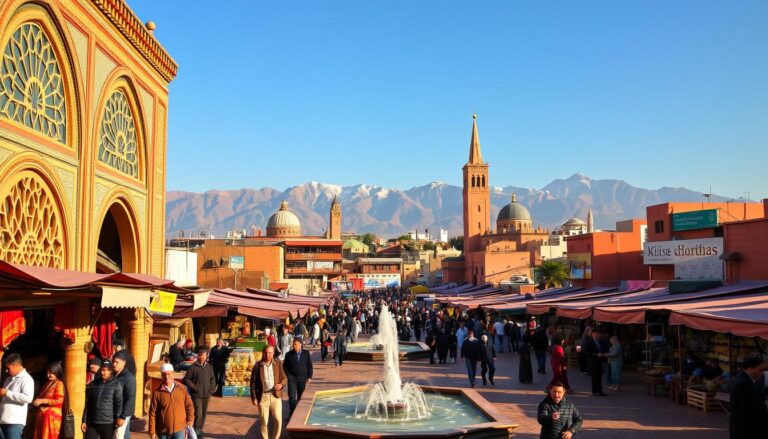Is Morocco Safe to Visit in 2025? What You Need to Know
Table of Contents
Over 12 million travellers explored Morocco’s vibrant markets and ancient medinas last year – a record high for this North African gem. If you’re considering a visit, you’ll be pleased to know the country has consistently ranked as one of Africa’s safest destinations for international tourists.
With its stable political climate and proactive approach to visitor security, this culturally rich nation offers experiences that balance adventure with reassurance. Local authorities prioritise tourist safety through visible policing in popular areas and dedicated tourist support services.
You’ll find most visits unfold smoothly, particularly when sticking to well-trodden routes and respecting local customs. Modern infrastructure in cities like Marrakech and Chefchaouen makes navigation straightforward, while licensed guides can enhance your experience in rural regions.
Key Takeaways
- The nation maintains strong security measures in tourist hotspots
- Political stability under King Mohammed VI supports safe travel
- Tourism authorities prioritise visitor protection programmes
- Most travellers report trouble-free holidays with proper planning
- Cultural awareness significantly improves your experience
By understanding current conditions and preparing accordingly, you’ll be well-positioned to enjoy everything from Sahara camel treks to coastal escapes. The following guidance will help you navigate your journey with confidence.
Overview of Morocco Safety in 2025
Official travel advisories paint a reassuring picture. The UK Foreign Office categorises this destination as generally safe for British visitors, while US authorities maintain their lowest risk rating (Level 1). These assessments reflect decades of political consistency under stable leadership.
You’ll find robust security infrastructure in popular areas, thanks to substantial government investments. Over £780 million has been allocated since 2020 to enhance tourist protection measures and transportation networks. This commitment shows in:
| Security Feature | Urban Areas | Rural Zones |
|---|---|---|
| Police Visibility | 24/7 patrols | Checkpoints |
| Emergency Response | 8-minute average | 15-minute average |
| Tourist Helplines | Multilingual staff | Regional centres |
Strategic international partnerships further bolster safety. The country’s alliances with NATO members and EU nations ensure regular security collaboration. Over 83% of recent visitors reported feeling equally or safer here than in major European cities.
While no destination is risk-free, the statistics speak volumes. Tourism growth has outpaced regional neighbours by 14% annually since 2018. This success stems from professionalised hospitality sectors and strict licensing for guides – your best allies against minor inconveniences.
Morocco Safe: Key Travel Security Essentials
Your peace of mind starts with practical preparations. Comprehensive travel insurance remains non-negotiable – it covers everything from misplaced luggage to unexpected medical needs. Policies with 24/7 emergency assistance prove particularly useful when exploring unfamiliar regions.
Stay alert in bustling spots like markets and transport hubs where tourists naturally gather. You’ll notice visible security teams at major attractions, part of a globally praised protection system that combines surveillance tech with rapid response units.
Follow these essential precautions:
- Store digital document copies in cloud storage alongside physical backups
- Use hotel safes for passports and spare cash
- Save local emergency numbers as phone contacts
Make sure to complete embassy registration online before departure – it takes minutes but ensures authorities can assist you if needed. Accommodation staff often provide the most current advice about neighbourhoods to explore or temporarily avoid.
While serious risk remains rare, situational awareness helps you enjoy vibrant areas confidently. As one security expert notes: “Prepared travellers reap the richest cultural rewards while maintaining personal safety.”
Understanding Terrorism and Regional Risks
Global security challenges require informed travellers to understand both risks and protections. While no destination is immune to terrorism threats, the gap between perceived and actual danger often surprises visitors. Recent data shows security services here disrupt 94% of potential attacks before execution.
Global Context, Local Vigilance
You’ll find the UK Foreign Office notes a general terrorism threat across North Africa. However, regional authorities operate one of the world’s most sophisticated prevention networks. Over 100,000 religious leaders now promote moderate teachings in mosques nationwide – a grassroots defence against extremism.
Layered Protective Measures
Three key strategies keep popular places secure:
- Real-time intelligence sharing with European partners
- Undercover monitoring of potential threat groups
- Rapid-response units stationed near tourist hubs
This approach has prevented 27 major incidents since 2018. As a counter-terrorism expert explains: “Prevention beats reaction every time – that’s where their model excels.” You’ll notice discreet security checks at transport terminals, though these rarely disrupt genuine travellers.
Stay alert in crowded areas, but remember – your holiday risks here compare favourably to visiting London or Paris statistically. The kingdom’s track record proves preparedness trumps panic.
Dealing with Crime, Scams, and Fake Guides
Navigating bustling markets and historic sites requires awareness of common challenges travellers face. While most visits go smoothly, staying informed helps you sidestep petty crime and clever cons. Let’s explore practical ways to protect your belongings and experiences.
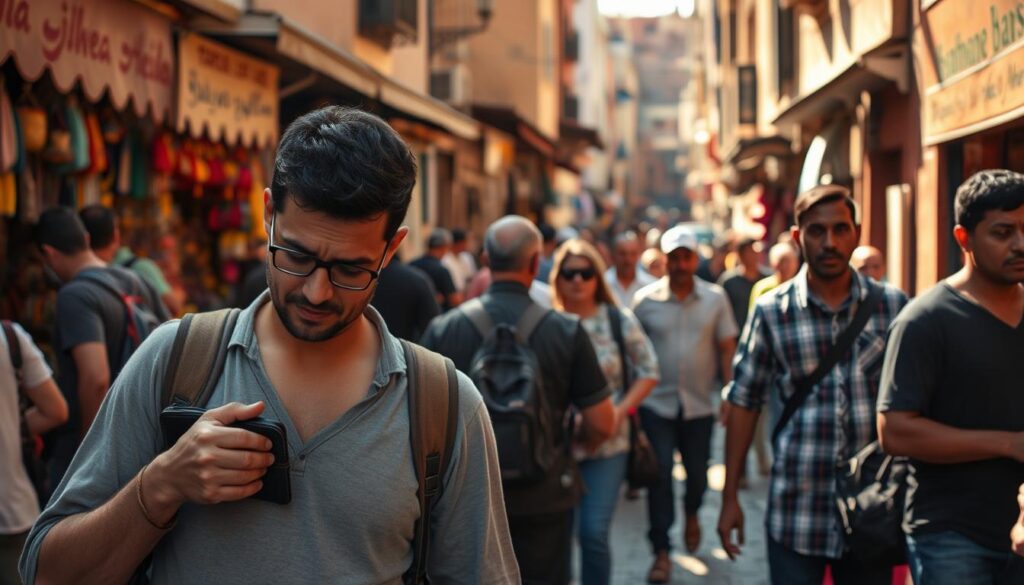
Spotting Common Tourist Traps
You’ll often encounter scams targeting visitors in busy areas. Watch for street vendors offering ‘special deals’ on goods – some may swap quality items for cheaper versions after payment. Always inspect purchases closely before leaving shops.
Credit card fraud remains an issue. Shield your PIN during transactions and check statements regularly. As one seasoned traveller advises: “Use cash for small purchases – it’s safer and helps with bargaining too.”
Handling Unwanted Approaches
Fake guides frequently approach people near attractions, claiming sites are closed or offering unsolicited help. Legitimate professionals carry official badges issued by tourism authorities. Politely decline services if they can’t show credentials.
Keep valuables secure in crowded spaces like beaches or medinas. Consider using anti-theft bags and avoid flashing expensive cameras. If harassed, head to populated areas and contact local police – they’re generally responsive to tourist concerns.
For those meeting new acquaintances, maintain control of personal documents. Relationship-based cons occasionally occur, so keep passports and return tickets in hotel safes. Staying vigilant lets you enjoy cultural wonders without unnecessary stress.
Road Safety and Driving in Morocco
Navigating the country’s diverse landscapes requires careful attention to road conditions and local regulations. You’ll encounter everything from smooth motorways to gravel-strewn mountain passes, each demanding different driving strategies.
Vehicle Documentation and Insurance Requirements
Before starting your engine, ensure you have:
- A valid UK driving licence
- 1968 version international driving permit
- Green card proving vehicle insurance coverage
Authorities conduct regular checkpoints where you must present these documents. As one travel expert warns: “Drivers without proper paperwork risk fines or vehicle confiscation.”
| Document Type | Validity Period | Penalty for Non-Compliance |
|---|---|---|
| International Permit | 1 year | £200 fine |
| Green Card | Policy duration | Vehicle impound |
| Vehicle Registration | N/A | Detainment |
Tips for Navigating Hazardous Road Conditions
Secondary routes often lack crash barriers and proper lighting. Overloaded lorries frequently stray into opposing lanes, particularly on mountain roads during rainstorms. Consider these precautions:
- Avoid night driving where possible
- Reduce speed by 30% in poor weather
- Hire local drivers for Atlas Mountain routes
Many app-based taxis operate without proper licensing. Stick to official vehicle services displaying registration numbers. With preparation, you can safely enjoy scenic drives from coastal highways to desert tracks.
Health Precautions and Medical Advice
Staying healthy while exploring new destinations requires smart preparation. Though no mandatory vaccinations exist here, taking sensible steps ensures you’re ready to enjoy local flavours without health hiccups.

Recommended Vaccinations and Health Preparations
Update routine immunisations like polio and tetanus before travelling. Consider optional protection against typhoid or hepatitis A if you’ll sample street food or stay in rural areas. Animal enthusiasts should discuss rabies jabs with their GP.
The country remains malaria-free except in one northern province. Pack insect repellent for evening outings, but don’t let tropical diseases dominate your packing list like in some neighbouring countries.
Safe Food, Water and Personal Hygiene Practices
Stick to bottled water despite urban supplies meeting safety standards – your stomach might protest unfamiliar minerals. Follow this golden rule for meals: “Boiled, cooked, or peeled – otherwise, leave it be.”
- Choose piping-hot dishes over lukewarm buffets
- Avoid unpeeled fruits and raw salads
- Carry hand sanitiser for market explorations
Private clinics in major cities offer quality care, but always carry cash for medical services. Comprehensive travel insurance becomes your safety net for unexpected health costs.
Navigating Cultural Differences and Local Laws
Understanding local traditions transforms your trip from a simple holiday to a meaningful cultural exchange. While many visitors find warm welcomes, respecting social norms helps avoid misunderstandings and shows appreciation for your hosts’ way of life.
Dress Codes and Social Expectations
Modesty matters in this Islamic nation. Both men and women should opt for loose clothing covering shoulders to knees when exploring beyond beach resorts. In historic cities like Fes, you’ll notice local women often wear headscarves – while not required for visitors, dressing conservatively earns respect.
Public behaviour requires particular attention:
- Save hugs and kisses for private spaces
- Remove shoes before entering homes
- Use right hands for greetings and eating
During Ramadan, adjust your habits even if not fasting. One traveller’s advice rings true: “Follow the crowd – if locals aren’t snacking in the medina, wait until sunset.” Many restaurants remain open in tourist areas, but discreetly.
Legal Considerations for Visitors
Same-sex relationships remain illegal here, requiring discretion from LGBTQ+ travellers. While laws mainly target nationals, public displays could draw unwanted attention. Unmarried couples sharing rooms generally face no issues in hotels, but rural guesthouses might ask for marriage certificates.
Women travelling solo should prepare for occasional stares or comments. A shopkeeper in Marrakech suggests: “Walk with purpose and sunglasses – they discourage prolonged eye contact.” Most harassment stays verbal, but knowing basic Arabic phrases like “la shukran” (no thanks) helps deter persistent approaches.
By observing these customs, you’ll discover Moroccan people often go out of their way to help respectful visitors. Their legendary hospitality shines brightest when met with cultural sensitivity.
Essential Travel Planning and Insurance Tips
Smart travellers know that seamless adventures begin long before departure. Investing time in thorough preparation lets you focus on creating memories rather than solving preventable issues. A well-organised approach combines practical safeguards with flexible planning.
Preparing Your Documents and Insurances
Start by photographing all essential paperwork – passports, visas, and vaccination certificates. Store digital copies in cloud storage and email yourself backups. Comprehensive travel insurance remains crucial, particularly policies covering emergency medical evacuation and trip interruptions.
Consider these essentials when choosing coverage:
• 24/7 assistance helplines with multilingual support
• Minimum £1 million medical coverage
• Protection for adventure activities like desert trekking
Renew European Health Insurance Cards (EHIC) if applicable, though they shouldn’t replace proper travel insurance. Keep physical document copies in separate luggage from originals. With these precautions, you’ll handle unexpected situations confidently while enjoying colourful souks and mountain vistas.

